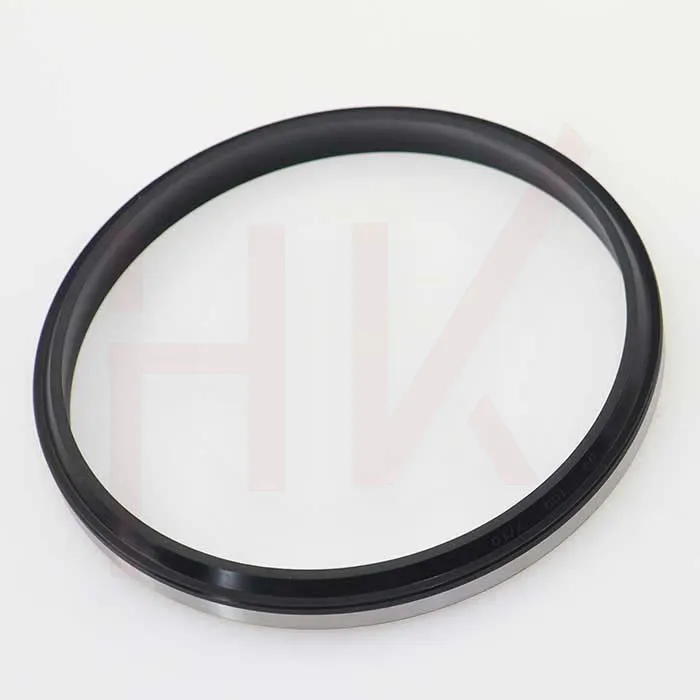Dec . 05, 2024 07:02 Back to list
mechanical seal kit
Understanding Mechanical Seal Kits Components, Applications, and Benefits
Mechanical seals play a crucial role in industrial processes, ensuring the efficient and reliable operation of rotating equipment. A mechanical seal kit often contains all the necessary components to replace or install a mechanical seal in pumps, compressors, and other machinery. In this article, we will explore the essentials of mechanical seal kits, including their components, applications, and significant benefits.
What is a Mechanical Seal?
A mechanical seal is a device that helps prevent leakage between rotating and stationary components in pumps and compressors. Unlike traditional gaskets that may deteriorate over time, mechanical seals provide a more reliable barrier against leakage, serving dual purposes containing the media within the machinery and protecting the mechanical parts from contaminants present in the external environment.
Components of a Mechanical Seal Kit
A typical mechanical seal kit includes several essential components, which can vary based on the specific application and machinery type. Here are the primary elements usually included
1. Mechanical Seal The heart of the kit, which consists of a rotating seal face and a stationary seal face. These components work together to create a tight seal under various operating conditions.
2. Spring or Spring Ring This component applies pressure to the seal faces, ensuring they maintain contact even during vibration or thermal expansion.
3. O-Rings These rubber rings help to secure the seal assembly in place and prevent external contaminants from entering the sealing area. They can also act as secondary seals to further minimize leakage.
4. Seal Housing Some kits may include components to house the mechanical seal, ensuring it fits securely in the equipment.
5. Installation Tools Many mechanical seal kits come with specific tools necessary for the installation process, such as alignment jigs or special wrenches.
6. Lubrication Some kits may include a lubricant that is essential for the initial installation, minimizing wear during the break-in period.
7. Assembly Instructions Detailed guidelines on how to install the mechanical seal correctly are often included, ensuring that users understand the proper technique for a successful installation.
Applications of Mechanical Seal Kits
Mechanical seal kits are widely used across various industries, including
mechanical seal kit

- Pulp and Paper In pulp and paper manufacturing, mechanical seals are used in pumps that handle corrosive and abrasive materials
.- Chemical Processing Chemical industries rely on mechanical seals for their durability and ability to handle harsh chemicals without leaking.
- Water and Wastewater Treatment Mechanical seals are critical in pumps used for transporting water and treating wastewater, ensuring that the fluids remain contained.
- Oil and Gas In this sector, mechanical seals help manage the movement of oil and gas, preventing leaks that could lead to significant environmental hazards.
- Food and Beverage In food processing, mechanical seals ensure hygiene by preventing contamination and maintaining the quality of the product.
Benefits of Using Mechanical Seal Kits
Mechanical seal kits offer several advantages over traditional sealing methods
1. Reduced Leakage The primary benefit of using a mechanical seal is its ability to minimize or eliminate leakage, thereby protecting the environment and preventing costly downtime.
2. Lower Maintenance Costs By utilizing a mechanical seal, companies often face reduced maintenance requirements, leading to lower operational costs over time.
3. Improved Equipment Efficiency Mechanical seals help maintain system pressure and prevent contamination, leading to more efficient operation and longevity of the equipment.
4. Versatility Mechanical seal kits are available in various designs and materials, making them suitable for a wide range of applications and function in differing environments.
5. Easy Installation With all necessary components included in a kit, installing a mechanical seal becomes straightforward, minimizing the time and expertise required.
Conclusion
Mechanical seal kits are integral to the effective operation of many industrial applications. By providing a comprehensive solution for sealing needs, these kits not only enhance equipment performance but also bring significant operational benefits. Understanding the components and advantages of mechanical seal kits can help businesses select the right solutions for their machinery, ultimately leading to improved efficiency and reduced downtime. Investing in high-quality mechanical seal kits is a strategic move for any industry reliant on rotating equipment.
-
TCN Oil Seal Metal Ring Reinforcement for Heavy Machinery
NewsJul.25,2025
-
Rotary Lip Seal Spring-Loaded Design for High-Speed Applications
NewsJul.25,2025
-
Hydraulic Cylinder Seals Polyurethane Material for High-Impact Jobs
NewsJul.25,2025
-
High Pressure Oil Seal Polyurethane Coating Wear Resistance
NewsJul.25,2025
-
Dust Proof Seal Double Lip Design for Construction Equipment
NewsJul.25,2025
-
Hub Seal Polyurethane Wear Resistance in Agricultural Vehicles
NewsJul.25,2025
-
The Trans-formative Journey of Wheel Hub Oil Seals
NewsJun.06,2025
Products categories
















